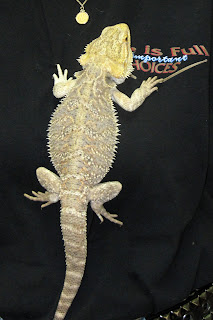It’s always been hard to
decide the answer to the age-old question, “…which came first, the chicken or
the egg?” That question, however,
is even harder to answer considering how long chickens have been around.
Here at WBS we worry about
a different question involving the egg of a bird (or also a reptile) that can
be a common conundrum with chickens.
Birds and other egg-laying animals can sometimes have a condition
referred to as egg binding. This
is where a female of an egg-laying species has problems passing a formed egg
out of its system. This can cause
many problems for the animal and sometimes, if not caught immediately, can
cause death.
Egg binding can be caused
by many factors that vary from species to species. The most common causes are calcium deficiencies (calcium
helps the muscles contract that lay the egg), early breeding (if the female is
too young and small), oversized or malformed eggs, an illness that weakens the
female, stress, dehydration, and genetics (the pelvis may just be too small for
egg laying). With so many possible
causes it is very important for owners/caretakers to
watch for the symptoms of being egg bound and also to be very particular on the
housing and food intake of egg laying animals.
Chickens are most commonly
found with the egg binding problem, mostly because of the large number of eggs
that they lay year round. When a
hen is egg-bound she will often become lethargic and ‘droopy’ compared to how
she normally acts. For example, a
shy bird that normally runs away when a person enters its space will not be
concerned with a person’s entrance when it is not feeling well. Unfortunately that is a sign for a
large range of illnesses, so other behaviors must be observed as well. Some signs may be fluffed feathers,
visiting the nest more often than normal, straining to lay the egg, tail
pumping up and down, lack of eating or drinking, swollen abdomen and a red or
swollen vent
Since being egg bound can
be fatal within 48 hours, it is very important to take action with the animal
in question as soon as possible. It
is best to consult your vet.
Even though we do not now,
and may never, know which of the two came first, it is very well known that
without either of them, we could not raise more chickens and other egg laying
animals.
So whether or not it was
the chicken or the egg, it is important that they both be made as healthy as
possible.
Submitted by Teresa
Aldrich, World Bird Sanctuary Naturalist/Trainer






No comments:
Post a Comment